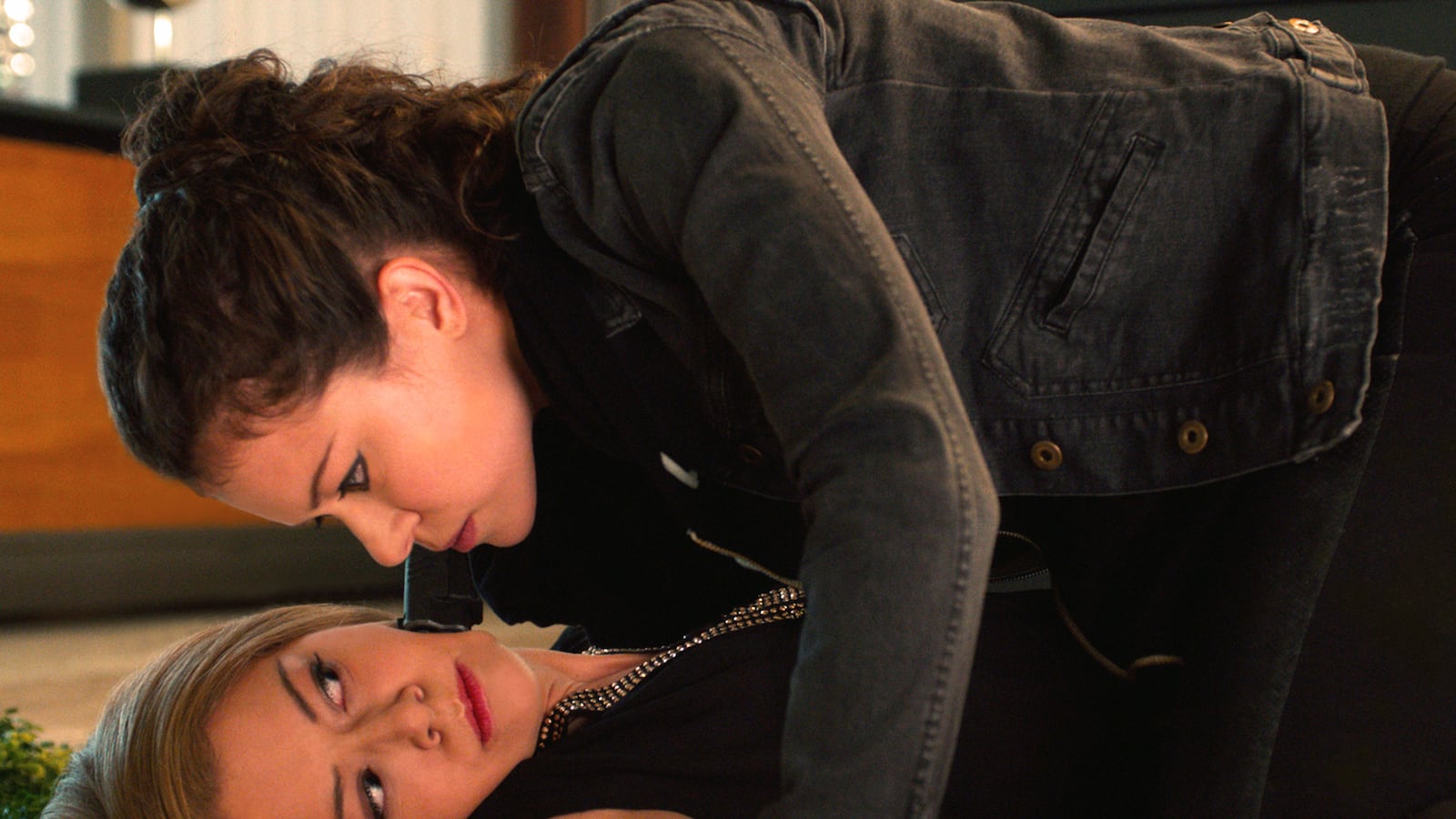Suburban soccer mom Alison tortures her husband with a hot glue gun, has sex with her friend’s husband in a minivan, and watches that friend choke to death after her scarf gets snagged in a garbage disposal. If she sounds like a character from a telenovela or Bollywood movie, that’s because she totally does.

This is the dark and often absurd humor that makes BBC America’s clone conspiracy saga Orphan Black so delightful. Alison is played by the marvelous Tatiana Maslany, an actress who hails from Regina, Saskatchewan. That’s the awkwardly pronounced capital of the prairie province and hometown of the late Leslie Nielson. That Maslany was able to rise from Regina to Hollywood stardom is remarkable; that the 28-year-old is able to play at least nine compelling characters in one television show is simply spellbinding.
The Canadian sci-fi show’s first season was pulpy, adrenaline-fueled television at its finest. There’s a lot going on here: identical women find out they’re clones while unraveling nefarious plots to kill and copyright them. Maslany is flawless as the British punk Sarah, dreadlocked nerdy lesbian Cosima, pantsuited vixen Rachel, and blonde assassin Helena. She acts in scene after scene after scene with herself, yet you feel as though you’re watching a talented ensemble. Her delivery never slips into a self-aware wink. This isn’t Nutty Professor II: The Klumps.
It’s her turn as the alcohol-guzzling housewife Alison, however, that really showcases her talent. Maslany delivers a nuanced portrait of a woman desperately trying to return to normal life—at least, as normal as life can be after you find out you’re a lab experiment orchestrated by an evil billion dollar research institute. In the second season she spends afternoons rehearsing for a musical and buying an unlicensed gun for her clone friend.
Maslany is so deeply ingrained in the DNA of Orphan Black that without her incredible performances, there would be no show. Orphan Black has that uniquely low-quality Canadian sheen of Degrassi; the plot usually hinges on preposterous twists like when a bloodied Helena sneaks into a police station and tampers with evidence. Meanwhile, the police talk in clichés and there’s a bad guy who, for some reason, has evolved a tail. Sarah’s gay foster brother Felix, played by Jordan Gavaris, quickly establishes himself as one of the only non-Maslany characters on the show with a personality.
Orphan Black is what my colleague Andrew Romano calls a Hyperserial, an impatient show with “a purer, more intense focus on one linear, series-long plotline.” But for a Hyperserial to truly be successful, you need a compelling question to propel the show forward. The first season of Orphan Black—from the first scene where Sarah sees her clone Beth commit suicide—had an undeniable and unstoppable narrative momentum as the clones united and investigated their origin. It’s what made the show so bingeworthy.
As the second season begins, we know the murderous bad guys, we know the diabolical corporation, we (sort of) know the semi-trustworthy rebels, and we know the principal clones. Will audiences have the patience for arbitrary twists, new characters (and possibly new clones), and a deeper dive into generic science-fiction?
The answer, of course, is yes. Unlike Game of Thrones, which can go an entire episode in Westeros without Daenerys Targaryen and her dragons, in Orphan Black there is no escaping Maslany. For now, that’s reason enough to tune in.





